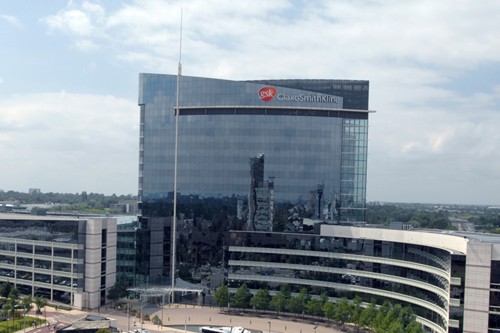
GlaxoSmithKline and its forerunners have been closely associated with respiratory drugs for decades, but that era may be coming to an end, according to one senior executive.
Axel Hoos, GSK’s head of oncology, told S&P Global Market Intelligence this week that shrinking opportunities in respiratory resulting from generic competition and increased pricing pressure could see respiratory R&D sidelined and more money diverted to growth areas like cancer and immunology.

Axel Hoos
He also said that GSK is considering a shake-up of R&D projects under new head of R&D Hal Barron, who joined the company from Calico, and could jettison some assets – even in the flagship HIV and vaccines areas – in order to re-direct resources into oncology.
Barron made much of GSK’s immunology and immuno-oncology portfolio on the company’s interim results call, saying it has 27 new molecular entities (NMEs) in these areas which account for almost two thirds of its pipeline.
That balance is in stark contrast with GSK’s third-quarter results, which were release yesterday. Oncology is largely absent after GSK sold off the bulk of its cancer drugs to Novartis in 2015, and immuno-inflammation is by far the smallest drug category for the group, bringing in just £122m in the quarter versus £1.67bn for respiratory and £1.2bn for HIV.
It is however growing at a much faster rate; respiratory grew 3%, HIV was up 11% and immuno-inflammation – led by lupus drug Benlysta (belimumab) – rose 28%. Meanwhile, vaccines grew 12% to £1.92bn led by new shingles vaccine Shingrix which contributed $286m in the quarter.
Exiting respiratory would nevertheless be a seismic change for GSK, which can date its involvement in the area back more than 40 years, and has claimed to supply around a third of the world’s asthma and chronic obstructive pulmonary disease (COPD) medicines.
Much of its recent success was built on the back of combination therapies that were first introduced in the late 1980s, and culminated in its blockbuster Advair/Seretide (salmeterol/fluticasone propionate) product that has brought in more than $100bn in sales since its launch in 2001. Sales of Advair are now in decline in the face of patent expiries in Europe and other world markets, and that will get steeper once generics become available in the US.
Advair’s decline means that GSK has a lot riding on newer respiratory products, which collectively grew 39% to £645m but will still be some way from making up for Advair’s declines once generics arrive in the US, particularly as the respiratory category is now much more crowded. GSK has high hopes for three-drug combination Trelegy (fluticasone furoate/umeclidinium/vilanterol), but with third-quarter sales of £42m, that is still a long way off its blockbuster sales projections.
Hoos’ comments are looking to the future, of course, and there’s little doubt that respiratory and HIV are less attractive markets overall than cancer, which has been growing fast thanks to an explosion of new studies and product launches in immuno-oncology.
“Our portfolio is still too big and we need to just stop a few projects that are less likely to succeed,” he told S&P. “Or where we don’t have a focus, divest some stuff that liberates resources that we can use to accelerate the big ticket programs that we believe will carry the success for GSK.”




